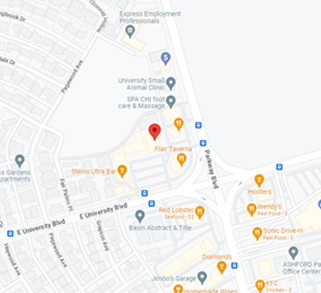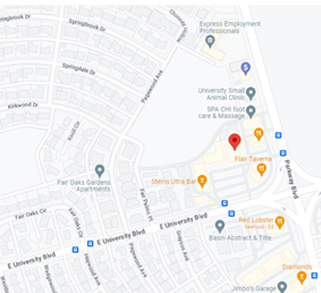If you wear hearing aids, you know the need for reliable batteries. How long do hearing aid batteries last? This is one of the most common queries people have.
The type of hearing aid you have, the size of the battery, and how often you use it will all affect the answer. However, handling battery packaging is a problem that every user of hearing aids faces, regardless of how long they last. Despite being made to ensure safety, modern packaging frequently seems needlessly complex. Opening a new battery pack can easily become stressful due to small tabs and plastic seals.
This blog will explain why packaging has changed, typical problems users encounter, safe handling techniques for hearing aid batteries, and Waco resources to help make life easier.
Why Packaging has Changed
In recent years, battery packaging has changed dramatically. Older designs often featured simple peel-off backs or easy-access flaps. However, manufacturers were forced to reconsider their packaging due to growing safety regulations and environmental concerns.
Among the leading causes are:
- Safety for children: Hearing aid batteries are tiny and harmful if ingested, particularly by children or animals. To prevent unintentional consumption, packages are now manufactured with child-resistant features.
- Protection of the shelf life: Airtight sealing lets batteries stay fresh until you need them. Even a slight exposure to air can shorten a battery’s lifespan.
- Environmental regulations: In many places, packaging must be recyclable, tamper-proof, or adhere to strict labelling standards for secure disposal.
Common Challenges with New Packaging
When opening their battery packs, many people who use hearing aids have a difficult experience. Among the most prevalent problems are:
- Tabs too small to grip: Small sticky tabs used in modern packs are difficult to manage, particularly for those with arthritis.
- Plastic barriers that won’t peel easily: Certain packages need a lot of power, which might be challenging for older adults or people with weaker hands.
- Difficulty identifying battery size: Purchasing the incorrect battery size might be caused by unclear labels or small print.
- Risk of dropping batteries: Because of their small size, batteries are easy to lose once removed, and they can occasionally be dangerous if children or pets find them.
Safe Strategies to Open Battery Packages
Here are some safe and practical ways to lessen the stress associated with battery packaging if it seems overwhelming:
- Carefully use a small utility knife or scissors. Cut open one side of the packaging to provide a flap for convenient access rather than using your fingers to peel tabs.
- Work on a table or tray. This guarantees that a battery won’t roll away if it falls out of your grasp.
- Keep in a special container. For easy access, place the opened batteries in a small, clearly marked pillbox or hearing aid battery container.
- Magnification tools can be helpful. A work lamp or magnifying glass can help you see the tabs better if you have vision problems.
- Request a demo from your hearing aid professional. An audiology expert in Waco can demonstrate safe battery pack handling techniques and suggest brands with simpler packaging.
Quick Comparison: DIY vs Rechargeable Options
Rechargeable hearing aids are one option to get rid of packaging annoyances. Now let’s contrast the two:
Traditional Batteries
- Pros: readily available, reasonably priced, and portable supplements for travel.
- Cons: Frequent disposal duties, complex packaging, and ongoing repurchasing.
Rechargeable Hearing Aids
- Pros: Eco-friendly, hassle-free packing, and easy nighttime charging.
- Cons: greater initial outlay and reliance on charging availability.
For those wondering, “where do I pack hearing aid batteries when flying?” Disposable choices include keeping them in their original packaging or a protective case in your carry-on. When using rechargeables, all you need to bring is your charger.
Local Waco Resources for Support and Batteries
You don’t have to face these problems alone if you live in or near Waco. Life can be made easier by local resources:
- Waco hearing aid specialists frequently sell batteries directly, guaranteeing that you acquire the correct quantity without dealing with confusing packaging.
- Roger Clark Hearing Centers, a Waco audiology clinic, offers lifestyle-specific advice on rechargeable and disposable choices.
- Batteries are available at big-box retailers and neighborhood pharmacies, but expert clinics can teach you packaging tips and suggest more user-friendly brands.
Join the Advocacy to Make Packaging Easier
You’re not the only person who finds the packaging of hearing aid batteries frustrating. Many users, advocacy organizations, and experts have urged manufacturers to improve the usability of packaging.
Among the things you can do are:
- Communicating directly with producers to share comments. Inform them of the most challenging aspects of the packing.
- Joining forums for hearing health. Online groups frequently organize campaigns for more accessible designs.
- Supporting legislation. Laws that prioritize safety and accessibility can help strike a balance between senior usability and the need to safeguard children.
- Raising awareness in the community. You can speak with your Waco audiology practitioner to contribute to the discussion of improved solutions.
Contact Roger Clark Hearing Centers
Battery packaging for hearing aids can be annoying, but it doesn’t have to be if you have the correct help and methods. We make hearing care easy at Roger Clark Hearing Centers, your go-to Waco expert in hearing aids. We are here to help you maintain your hearing health stress-free, offering everything from professional Waco audiology services to battery advice and rechargeable alternatives. Visit Roger Clark Hearing Centers today, and we’ll help you eliminate the headache associated with changing your hearing aid batteries.
FAQs
How long is the battery life of hearing aids?
The battery’s size, daily usage, and power requirements affect its duration. Generally speaking:
Dimensions: Ten batteries: 3–7 days
Battery size 312: 7–10 days
Batteries in size 13: 10–14 days
Size 675 batteries: 20 days or longer
Usually lasting a full day when fully charged, rechargeable batteries require replacing every one to three years.
Where do I put the batteries for my hearing aids when I fly?
Keep extra hearing aid batteries in your carry-on luggage at all times. Store them in their original package or a protective case to prevent unintentional discharge. Do not stow them in checked luggage because of the risks of pressure and temperature.
How should batteries for hearing aids be disposed of?
The ingredients found in hearing aid batteries shouldn’t be disposed of in the trash. Put spent batteries in a specific recycling container and deliver them to a nearby recycling facility, hearing aid expert, or battery-accepting drugstore.
How do I proceed if I cannot open a battery package?
Don’t push it. Instead, carefully clip the edge with scissors or, after opening, move the contents into a tiny container. If problems continue, ask your audiologist to suggest products with simpler packaging.
Should I get rechargeable hearing aids instead of ones that require batteries?
Rechargeables can be a wise purchase if packaging is your primary concern. They relieve you from persistent package difficulties and are handy and eco-friendly. You may determine whether this choice fits your lifestyle with the assistance of your Waco audiology expert.








